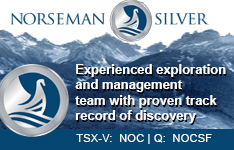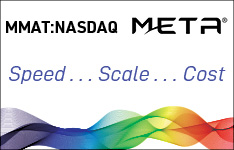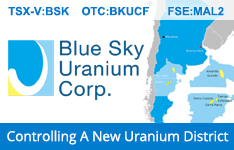As the ongoing war in Ukraine continues with no obvious end in sight, and tensions in other regions are ramping up, investors are inevitably trying to find an upside in the market.
"Defense and cybersecurity stocks are seeing a sharp rise in values as investors take note of pledges by the EU to boost defense spending and governments warn of an increased threat of cyber intrusions following Russia's invasion of Ukraine," reported Edward Helmore in The Guardian after the invasion began.
In the same article, he quotes an Investor Place note explaining, "If Germany is feeling pressure to bolster its military and defense systems in this way, other countries are likely to follow suit."
Speaking in a Forbes article from March of last year, Chris Senyek of Wolfe Research concurred that "with geopolitical tensions likely to remain high, we expect many countries (both inside and outside of NATO) to look to fortify their military capabilities and increase defense budgets on a secular basis."
To help you figure out how to position yourself in this high-energy market, this article will answer the following questions:
- Which types of companies are in the defense sector?
- What is different about funding in the defense sector?
- What are the five most influential companies in the defense sector?
- What small-cap stocks are innovating in the defense field?
- What private defense companies should be on your radar?
Which types of companies are in the defense sector?
According to Jenna Kerwin of Excelsior University, "A defense contractor is a business organization or individual who provides products or services to a government's military or intelligence department. These products and services can include technical support, training, weaponry, aircraft, vehicles, communications support, logistics, and electrical systems."
For example, Firestorm is a company that focuses on mission-adaptable aerial vehicles. It would be considered a defense company, and if public, it would be a ‘defense stock.'
Whenever America is involved in a military conflict, the demand skyrockets for products produced by companies in the defense sector.
According to a piece published in December by Duynz.com, "Congress is on track in the coming week to give final approval to a national military budget for the current fiscal year that is expected to reach approximately US$858 billion — or US$ 45 billion above what President Biden had requested."
As purchase orders and ongoing contracts increase, so do the value of the underlying equities.
What is different about funding in the defense sector?
Unlike most public companies, businesses in the defense sector generally get most – if not all – of their business from the U.S. Government and other national governments. The relative transparency of the U.S. Government means you can easily find out which companies have recently received government contracts and how big those are.
World Population Review reports that the United States has the world's largest defense budget, at US$750 billion. This budget is more than three times that of China (US$ 237 billion), traditionally the next highest spender. Rounding out the top five are Saudi Arabia (US$ 67.6 billion), India (US$ 61 billion), and the United Kingdom (US$ 55.1 billion).
Japan recently unveiled its biggest military buildup since World War II with a US$320 billion plan to buy missiles capable of striking China and ready the island nation for sustained conflict.
Regarding historical defense spending, Japan's military budget for 2020 was US$51.97 billion, a 1.96% increase from 2019. In 2019, it was US$ 50.97 billion, a 5.02% increase from 2018. In 2018, it was US$ 48.54 billion, a 7.72% increase from 2017. These budgets are a considerable buildup from its spending following WWII, which remained under US$10 billion annually until 1980.
According to a report from McKinsey, "The U.S. Department of Defense is investing in innovative defense technology and funding nontraditional defense contractors via Other Transaction authorities."
According to a report from McKinsey, "The U.S. Department of Defense is investing in innovative defense technology and funding nontraditional defense contractors via Other Transaction authorities."
"These agreements, which are designed to streamline the acquisition process, can be directed to either traditional or nontraditional defense contractors. This acquisition method has been in place for decades but has increased in popularity in recent years, fueled at least in part by the passage of the 2015 and 2016 National Defense Authorization Acts, which encouraged greater use of OTAs to pursue new capabilities."
"Many OTAs are being used to fund nontraditional companies that are developing innovative solutions in key technology areas on which the DoD is focusing. OTA awards have been directed to a large number of unique recipients. Nearly 1,000 nontraditional companies received emerging-tech awards over the three-year period of our study."
When coupled with the semi-transparent nature of government contracting, the OTA program provides startups in the defense sector with a more stable incubation phase than one would expect in any other commercial market.
What are the five most influential companies in the defense sector?
When becoming more familiar with the defense sector, it helps to learn a little bit about the biggest companies it comprises. Briefly, they are:
Lockheed Martin Corp. (LMT)
Founded in 1961, Lockheed Martin Corp. (LMT:NYSE) has become a global leader in large-scale military equipment. It's the largest defense company in the world.
As a company that innovates in multiple industries, Lockheed is involved in space, aeronautics, missiles and fire control, and mission systems.
One quintessential example of the products Lockheed provides is the F-35 Joint Strike Fighter, which is the most expensive jet ever built.
Boeing Co. (BA)
Known primarily as a producer of commercial aircraft, Boeing Co (BA:NYSE) also provides innovative products for military, security, and space pursuits. As an industry titan, Boeing employs more than 140,000 people in 65 countries. While it has a wide range of segments, commercial airliners have been its flagship product for decades.
Ultimately, 90% of the world's cargo is carried on planes made by Boeing.
Raytheon Technologies Corp. (RTX)
Defense is the industry that Raytheon Technologies Corp. (RTX:NYSE) is known for. From cybersecurity and military aircraft engines to air warfare and missile defense, Raytheon produces many complex weapons and tools for countries worldwide.
In late 2022, the U.S. Army announced a US$1.2 billion contract with Raytheon to deliver six surface-to-air missile system batteries, including training and associated logistics support. Contracts like these openly illustrate when a defense company's products are in high demand and suggest that its equities could potentially be a stable investment.
General Dynamics Corp. (GD)
Among this company's many aerospace and defense pursuits is one that sets it apart from the rest: shipbuilding. From ships to tanks, General Dynamics Corp. (GD:NYSE) produces many of the vehicles used in the American military.
This versatility keeps the company's products in high demand from the US Navy. In August of 2022, General Dynamics NASSCO secured a US$1.4 billion contract to build ships for the U.S. Navy.
Pfizer Inc. (PFE)
Although Pfizer Inc. (PFE:NYSE) is best known as a creator of vaccines and medications, it's officially a defense stock. In fact, it was recently awarded US$3.2 billion in a contract with the U.S. Army.
It may seem strange that the company responsible for a major COVID vaccine also has contracts with the U.S. Army, but like other large defense companies, Pfizer has many different divisions worldwide, and they all produce various products for both defense and commercial applications.
What small-cap stocks are innovating in the defense field?
Giant companies with worldwide recognition aren't the only ones worth watching. Let's take a look at some up-and-coming companies that are changing war as we know it.
Appili Therapeutics Inc. (APLI)
Like Pfizer Inc., Appili Therapeutics Inc. (APLI.TSX)s a pharma corp focused on drug development for infectious diseases and biodefense. Appili is developing a diverse range of anti-infectives. In addition to its defense market exposure – which involves developing a vaccine candidate to eliminate a biological weapon threat – the company is trialing a topical antiparasitic product to treat a disfiguring disease, an antifungal, and two antibiotic programs.
In January, the company announced the appointment of Dr. Carl Gelhaus and Arthur Baran to support the ATI-1701 Biodefense Vaccine Program, a potential first-in-class vaccine candidate for preventing infection with aerosolized Francisella tularensis, which the U.S. National Institutes of Health classifies as a "Category A" pathogen and top-priority biothreat.
The announcement follows news from late last year that the U.S. Department of Defense, via the Joint Science and Technology Office of the Defense Threat Reduction Agency in partnership with the U.S. Air Force Academy, will provide at least US$14 million in funding (Currently, Appili has a market cap of CA$4.24 million.) over two years to fund the development of ATI-1701. This revised funding represents a 40% increase over the originally anticipated DTRA funding for this program, as announced in February 2022.
DroneShield (DRO)
Drones are rapidly becoming a normal part of life, and DroneShield Ltd. (DRO:ASX; DRSHF:OTC) is focused on protecting people from this emerging threat.
Founded in Australia in 2014, DroneShield has been in the news lately for its innovative protection services. With countries like Iran and Russia actively using drones in warfare, DroneShield has developed an array of products to take these unmanned vehicles out before they can do damage.
On December 21, the company received an all-time record purchase order for approximately AU$11 million. Then the next month, it received another AU$11 million order for an unnamed government agency customer.
Earlier this year, DroneShield's DroneGun Tactical, a long-range counter-drone system, was used to take down four drones during the inauguration ceremony for Brazil’s president-elect, Luiz Inácio Lula da Silva.
With its stock priced at a fraction of those of larger companies like Lockheed and backing from private companies like Epirus Inc., DroneShield is a rapidly growing company that may be worth your attention.
Red Cat (RCAT)
Another up-and-coming defense company innovating in the drone warfare field is Red Cat Holdings Inc. (RCAT:NASDAQ).
In Q3 of 2022, the U.S. Border Patrol purchased over US$ 1 million in drones from Red Cat. The company's subsidiary Teal Drones, creates its most advanced drones, which are used for surveillance, warfare, and other dangerous tasks.
Then in November of last year, Red Cat reported it would divest its consumer business, consisting of Rotor Riot and Fat Shark Holdings, the Company’s recreational and hobbyist drones, and first-person-view goggles subsidiaries. This was done so the company could invest more on military and defense.
In March, the company announced it had invested in Firestorm Labs, a private defense company, written about below. Perpetua Resources Corp. (PPTA:TSX; PPTA:NASDAQ)
Perpetua Resources (PPTA)
You might not think of mining as part of the defense industry, but as more and more countries add more and more minerals to their critical minerals lists, this primary industry is becoming an inexorable part of defense supply chains. The US currently lists 50 different input minerals — from aluminum to zirconium — as critical to its national (which is to say, defense) ambitions.
Thus, Perpetua Resources Corp. Perpetua Resources Corp. (PPTA:TSX; PPTA:NASDAQ), which oversees the Stibnite Gold Project, is considered to be a defense stock, given its project's considerable antimony deposits. Perpetua is currently undertaking a permitting process for the redevelopment and restoration of this historically-active mining location.
What private defense companies should be on your radar?
In addition to public companies, both small and large, the defense sector contains many privately owned companies — and two of those are interesting enough that they've already been mentioned in this roundup.
Firestorm Labs
Like Red Cat Holdings, Firestorm Labs develops mission-adaptable unmanned aerial systems that, in the words of its marketing department, "upend the cost paradigm."
The company is based in San Diego, CA, and specializes in additive manufacturing, defense technology, modularity, air force weapons, MARSOC, cruise missiles, mission-specific systems, SOF, Air Force Special Warfare, and Air Base Defense.
Firestorm Labs is led by a team of experienced professionals focused on building the future of modular open-source architecture to support the Department of Defense's requirements for creating "Low-Cost Affordable Mass."
Epirus Inc.
In addition to owning a large piece of DroneShield, Epirus Inc. is a technology company focused on developing software-defined directed energy systems. These systems enable counter-electronics effects and power management solutions to optimize power efficiency in defense and commercial applications.
The company has recently raised US$ 200 million in Series C funding. This funding will help Epirus continue to develop its innovative technology and expand its reach in the defense and commercial markets (as well as possibly acquire a majority stake in DroneShield.)
| Want to be the first to know about interesting Special Situations, Technology and Biotechnology / Pharmaceuticals investment ideas? Sign up to receive the FREE Streetwise Reports' newsletter. | Subscribe |
Disclosures:
1) Owen Ferguson and Nicholas Napier wrote this article for Streetwise Reports LLC, and provides services to Streetwise Reports as an independent contractor. They or members of their household own securities of the following companies mentioned in the article: None. They or members of their household are paid by the following companies mentioned in this article: None.
2) The following companies mentioned in this article are billboard sponsors of Streetwise Reports: None. Click here for important disclosures about sponsor fees. As of the date of this article, an affiliate of Streetwise Reports has a consulting relationship with: DroneShield Ltd. Please click here for more information.
3) This article does not constitute investment advice. Each reader is encouraged to consult with his or her individual financial professional and any action a reader takes as a result of information presented here is his or her own responsibility. By opening this page, each reader accepts and agrees to Streetwise Reports' terms of use and full legal disclaimer. This article is not a solicitation for investment. Streetwise Reports does not render general or specific investment advice and the information on Streetwise Reports should not be considered a recommendation to buy or sell any security. Streetwise Reports does not endorse or recommend the business, products, services or securities of any company mentioned on Streetwise Reports.
4) From time to time, Streetwise Reports LLC and its directors, officers, employees or members of their families, as well as persons interviewed for articles and interviews on the site, may have a long or short position in securities mentioned. Directors, officers, employees or members of their immediate families are prohibited from making purchases and/or sales of those securities in the open market or otherwise from the time of the decision to publish an article until three business days after the publication of the article. The foregoing prohibition does not apply to articles that in substance only restate previously published company releases. As of the date of this article, officers and/or employees of Streetwise Reports LLC (including members of their household) own securities of Appili Therapeutics Inc., Red Cat Holdings Inc., and DroneShield Ltd., companies mentioned in this article.


















































